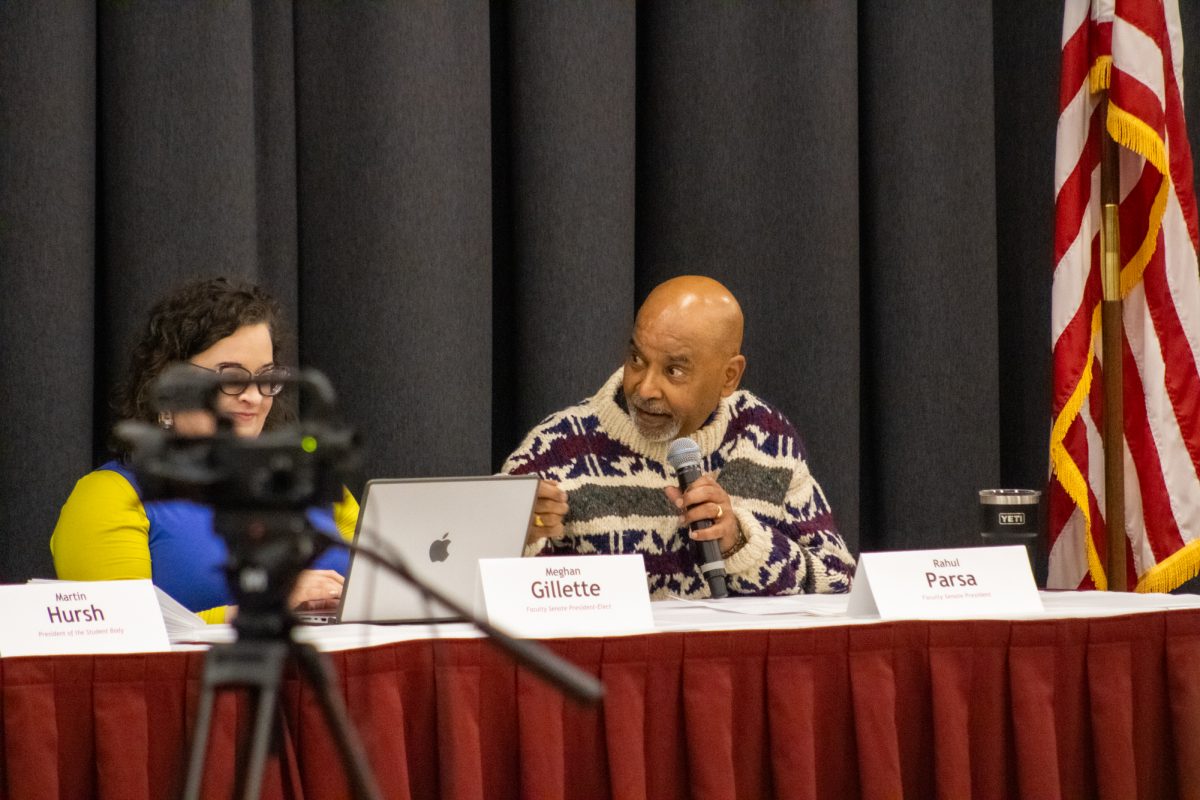DAVIS: Downloaded MP3s should not replace CDs
March 10, 2008
We all see it coming. A time when music is exclusively digital. Companies and record labels save unforeseen amounts of money in production costs by legally selling and distributing music online. Big business wins, and unfortunately, we lose.
According to the Los Angeles Times, a recent study says nearly half of all teenagers failed to purchase a single CD in the last year, which increased from 38 percent in 2006. While we are not all teenagers any more, the trend seems to have picked up steam among most age demographics.
In the last year, Apple’s iTunes store, which sells only digital downloads, jumped ahead of Best Buy to become the second largest U.S. music seller, trailing behind Wal-Mart. The number of CDs sold in the U.S. fell 19 percent from 2007 to 2006, while digital song sales increased 45 percent. The number of people buying music online jumped 21 percent last year alone.
Before this drags on and makes it seem as though I am fully opposed to change, let me state for the record that I am not against the purchasing of legal MP3s. A short list of pros to examine why legal digital downloading can be helpful includes shopping convenience, the ease of buying only certain or wanted tracks and the ability to store the purchased music on your ever-handy MP3 player. However, the factors on this list are not sufficient enough to eradicate compact discs from the music industry.
Qualitatively speaking, CDs are slightly superior to MP3s, depending on the frequency at which the music is played. Having a physical copy also means you own a permanent collector’s copy and a tangible print of the album art (and you get keep it forever).
What happens if you are one of the select few who shun the iPod, have a plethora of legally purchased MP3 downloads, own few CDs and your hard drive decides to pull a quick one on you? Chances are, granted you didn’t illegally duplicate all the tracks to a flash drive or *gasp* CDs, you are out all of that hard-earned cash you spent with no rebuttals and plainly SOL.
Online service of the digital files dictates where the music can be played. As far as I’ve seen, I’ve never met a CD player, gaming console or computer system that failed to play of a CD.
Beyond all the positives and negatives of both, one universal truth will always be guaranteed. New music, digital or physical, will most times be about the same price. The juicy kicker of this is that with digital music, you don’t have the choice of getting it any cheaper. While CDs can be sold for a fraction of their retail cost on many online sites, as well as in retail and specialty music stores, digital music prices are absolutely constant and can dictate the cost of music.
While I’m not judging those who get the bulk of their musical entertainment online, I am advocating the compact disc as a physical constant, at least until a viable alternative that doesn’t engender a digital monopoly is developed. Just remember that, while you are buying your favorite album on iTunes for about $1 a track, I am getting the same quality package for $5 on Amazon.com, all inclusive. Enjoy!
– Tanner Davis is a senior in
journalism and mass communication from Harlan.






